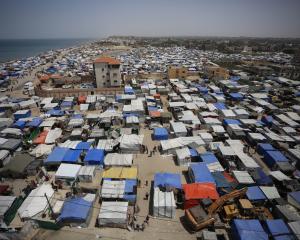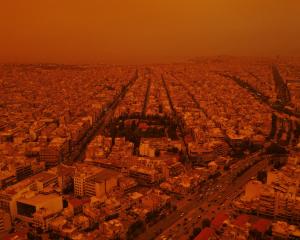Peter Maurer, in an interview marking the start of the fifth year of war in Syria, also voiced hope that a ceasefire can be clinched in Aleppo to allow more aid to be distributed in the shattered country's second largest city.
"We are looking in Iraq and Syria at a broad area where roughly 10 million people plus are living under ISIS group controlled areas. We do not have stable and solid access to this region," Maurer told Reuters in his Geneva office.
Islamic State, also known as ISIS, rules a self-proclaimed caliphate in Sunni regions in Syria and Iraq.
The ICRC has been able to considerably increase operations in various parts of both countries, crossing front lines to deliver humanitarian assistance, Maurer said.
"But let me also be very honest. There are places in Syria and Iraq in which we have not been able to delivery anything and where we are still eager to negotiate access to those populations," the Swiss said.
There were inaccessible "blank spots" in north and south Syria, he said, but the ICRC has delivered aid to besieged areas including the Damascus suburb of Moadimiya.
Aleppo, for example, has only 1.5 hours of electricity a day and conditions are of "grave concern", he said. Last week the ICRC evacuated 17 disabled people across front lines for treatment and restored a hospital generator.
The city, around 50 km (30 miles) south of the border with Turkey, is not under Islamic State rule but divided between government forces and insurgent groups fighting to topple President Bashar al-Assad in a war that has uprooted more than 7.6 million people within Syria and killed at least 200,000.
U.N. mediator Staffan de Mistura is pursuing a ceasefire in the city.
"COMPLEX ENVIRONMENT"
Meanwhile, Islamic State, the ultra-hardline al Qaeda offshoot has insinuated itself into aspects of daily life in the areas it controls in Syria and Iraq, including running traffic, banks, school, courts and mosques.
Nonetheless, the Red Cross says people lack basics such as food, clean water and medicines in Syria where much of the infrastructure has been destroyed.
The ICRC has access to "some places" in Syria held by Islamic State, Maurer said, citing its water and sanitation repairs in Raqqa, the northern Syrian province.
"It is a very complex environment, it's not a situation on which we can rely on unified chains of command which would immediately give us assurances on security and safety to move in those difficult circumstances," he said.
He said in Iraq, the group had been able to go into and to send deliveries into Mosul, but not every day that people need. "We have been able in Fallujua to do things, and some other cities in Iraq," Maurer said.
The ICRC has "well-established contacts" with the Syrian government and "reasonably good cooperation" in terms of it granting permission for convoys, visas and imports, Maurer said.
Syria is the independent agency's largest operation worldwide, with 300 staff and an annual budget of 164 million Swiss francs ($162 million).












